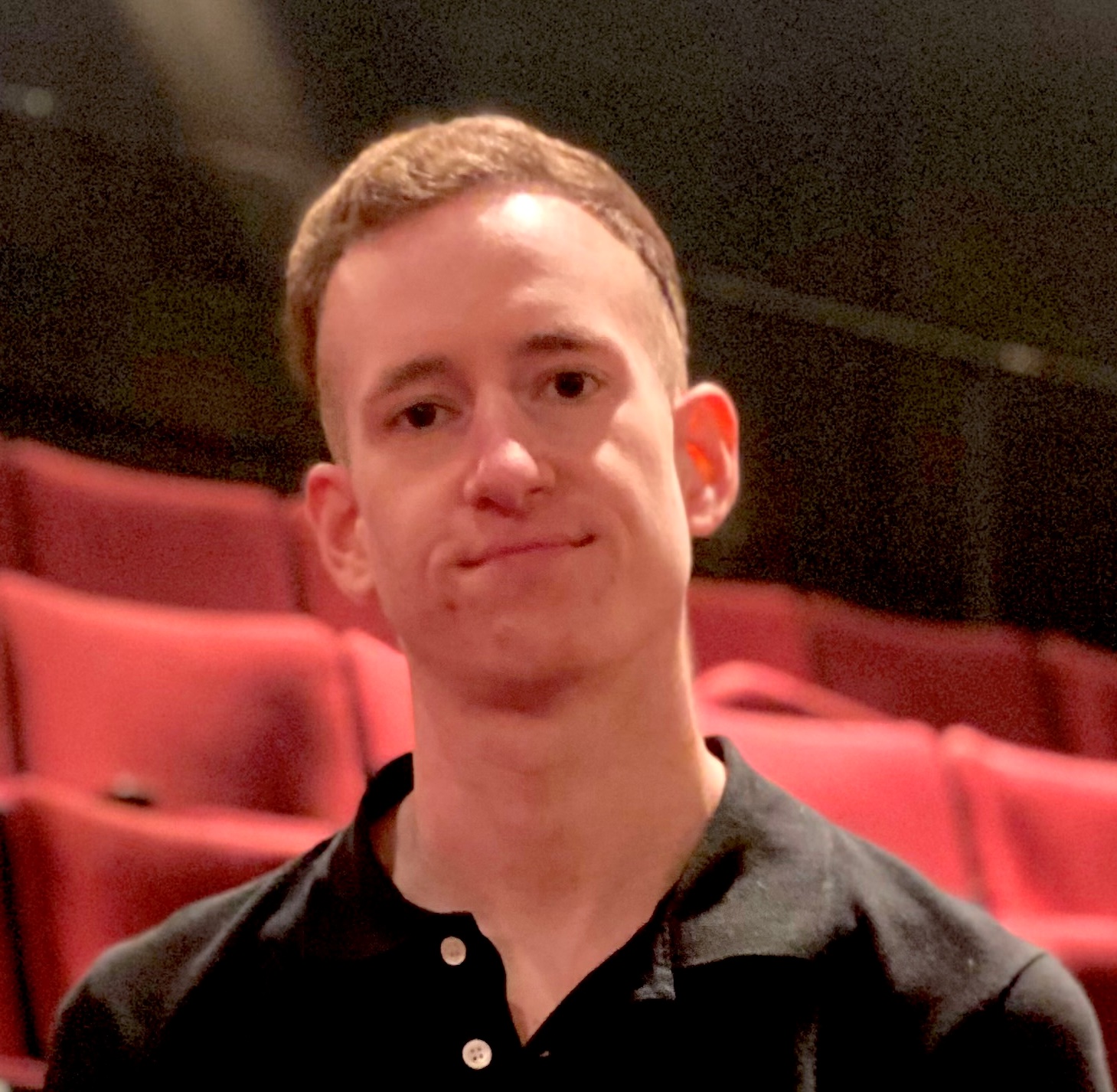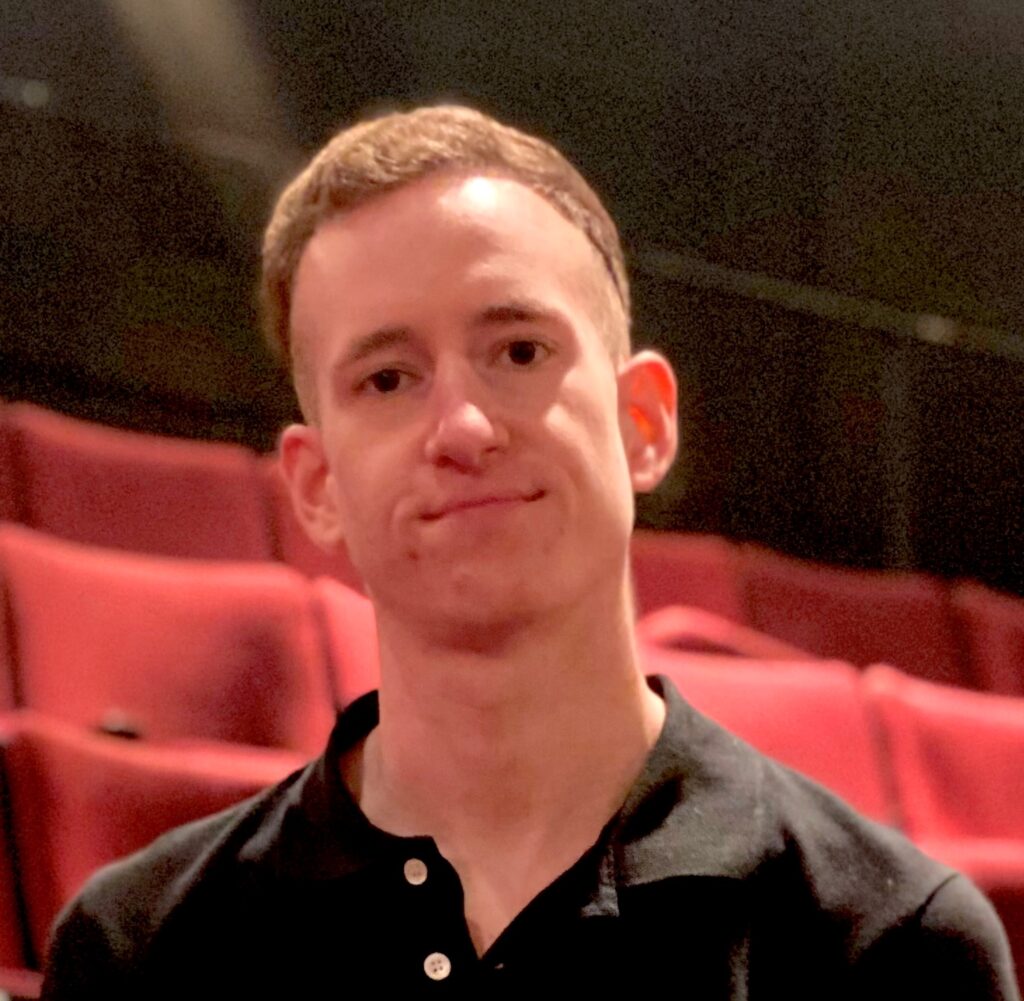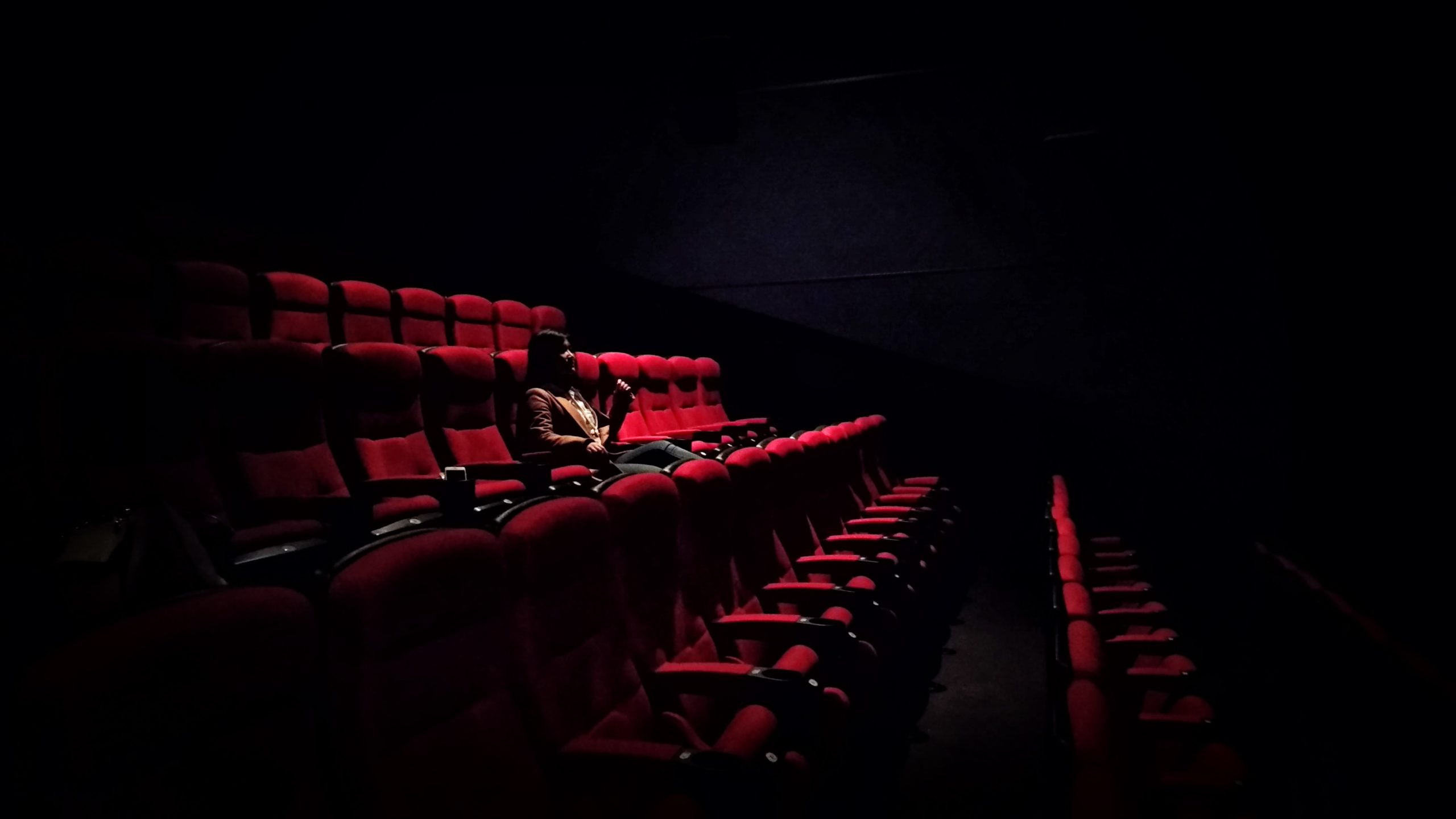
Medina Prize winner Lewis talks about the importance of advancing diverse voices in arts journalism

Growing up in Connecticut, Christian Lewis was lucky to travel to New York City to see matinee performances of plays and musicals from a young age. They pursued theater but a love of English and teaching became their full-time profession.
Lewis embarked on a writer’s journey in college where they began a blog writing about theater. Throughout their academic pursuits, they continued their critical theater writing, eventually getting paid as a freelance critic and journalist. Their byline would go on to appear in a slew of publications: Variety, American Theatre, Theatermania, Theatrely, Out, INTO, Queerty, Playbill, Did They Like It? and more. They co-hosted podcasts with the Broadway Podcast Network and spoke on panels at the Prelude Festival and the International Society for the Study of Musicals conference. They covered red carpets and awards.
This month, Lewis, an adjunct assistant professor of English at Vassar College, became The American Theatre Critics/Journalists Association’s third recipient of the annual Edward Medina Prize for Excellence in Cultural Criticism. A jury of theater, journalism, and communications professionals named them from 30 applicants nationwide.
Lewis is a member of ATCA, the Outer Critics Circle, and GALECA: The Society of LGBTQ Entertainment Critics where they vote on the Dorian Theater Awards.
On Saturday, Nov. 9, critic, journalist and 2023 Medina Prize winner Gloria Oladipo will help present Lewis with the 2024 prize. The two will discuss theater criticism and more at ATCA’s November 2023 conference in New York.
The following is a lightly edited excerpt of a conversation between Lewis and Elizabeth Kramer, co-chair of ATCA’s Belonging, Equity, Inclusion and Diversity committee.
What did you think when you received notice that you had gotten this award?
I had been very aware of this award and applied for this all three years. I also received support during the process from several editors in my life. Every year, they would send me info about it and tell me,” You should apply.” I would tell them, trust me, I already have. But when I got the email, it was such a delightful surprise.
How did you get involved in critical writing? Where did it come from a background in writing or theater?
Both. In college, I was a double major in English and drama. I knew I wanted to get my PhD in English, and now I’m an English professor. I picked English over the theater but wasn’t willing to give up on theater. I wanted to figure out a way to keep working in theater, even if I decided not to be an actor, costume designer, or dramaturge. I started in college with an online blog. Then that took off a bit. I got to write for The Huffington Post and freelance from there.
The Medina Prize aims to recognize critics and journalists from historically underrepresented groups and includes many including people of color, people who are LGBTQ, trans or have disabilities. You describe yourself as identifying with several. When you started writing, did you notice being among underrepresented groups and think about what you wanted to do with your voice?
I noticed early on that the core of critics wasn’t exactly the most diverse crowd, and that it needed new and diverse perspectives representing marginalized communities, people coming from more authentic places of knowledge and experience than some less-diverse critics. There were a lot of older, white, able-bodied, cis, straight and gay men who had a limited lens, and it shouldn’t be what all of our criticism is coming from. Now, I like that there’s been an opening up of criticism. I love seeing more women and Black critics getting full-time staff positions. We have more young critics like me. I’m very proud to represent the queer, trans, and disabled communities. I’m also happy this prize highlights writers whose work needs spotlighting — especially when writing about art and representation.
How does your experience living with a disability shape your criticism?
My disabilities are not visible, but disability is important to me. My academic work in the English world is about disability, gender, and sexuality — and I have a book coming out about that soon.
I don’t often get to incorporate that into my theater criticism. But I very much want to write about shows that include plots and characters with disabilities and shows by disabled people. I want to highlight the work being done in those areas.
How have you noticed other critics handling the subject of disability in narrative, using characters or when an artist is part of that community?
I’ve seen slightly parallel approaches to writing about disabled characters or about art by disabled people to writing about trans issues and race issues on stage.
Often, critics who don’t have a relationship with those marginalized characters don’t write about them in deeply empathetic or knowledgeable ways. So, we’ve seen productions take specific action. A few shows recently put out press guides for critics with language to use and language not to use about disability. This happened on Broadway with “How to Dance in Ohio” and off-Broadway with “All of Me.”
Despite that, several critics still use offensive, ableist language. They don’t follow basic guidelines and just aren’t critically thinking when printing somewhat ableist, inaccurate things. It happens, likewise, with trans art and trans characters. There are clueless and transphobic reviews that actively misgender a character or an actor. This is why we need more critics who understand and care about these things.
One article you submitted for the Medina Prize addressed the waning number of shows that include queer and trans stories. It looked at some of the reasons why and you talked to people in the business to get their points of view. Your thought-provoking piece takes a deep dive.
That piece was my main submission for the Medina Prize this year. It analyzes queer and trans representation for the whole season, off and on Broadway. I spent a lot of time researching and talking to people and seeing a lot of shows. As I was seeing all of the shows and thinking about it, I was seeing fewer and fewer queer characters and almost no trans characters at all.
For the article, I also talked to GLAAD and got a lot of data proving that audiences want more queer and trans representation. That supports having more of this art out there and more queer and trans characters on Broadway. It’s such a queer space, and it’s such a queer audience that I think that should be reflected on stage.
I was passionate about that piece. It was different from being a critic and seeing one show and then sadly, rather quickly on a tight deadline, turning around one review of the show.
I like writing reviews, but I really love when I get these opportunities to dig in deeper and write something longer, something more critical and analytical with an argument that’s not just a review.
Did you or your editor propose this article?
The editors asked me to write a piece looking at the whole season and how queer representation is happening. It was very open-ended.
What feedback did you get?
It was widely read, and I’m happy I got an award partially for that. I went in without a clear idea of what the argument for the piece was going to be.
I want people to think critically about the whole season, the theater landscape, and trends. If we talk about these enough and I write enough pieces, things could change for the better.
I try to think about my larger pieces as advocacy and criticism that advocate for various marginalized communities. I try to advocate for these communities so they are represented in better, more considered and authentic ways.
You have talked about the value of critics who come from marginalized communities and their voices and using them responsibly. Can you elaborate?
This gets at the very point of this award. We need more critics writing about these groups, writing about theater, period, and sharing our voices and our perspectives.
I’m a very precarious freelance writer. At the start of every season, outlets tell me, “We’re cutting back coverage,” “We don’t have a freelance budget,” or “We’re not doing this at all anymore.” Then when you look at the whole group of critics, and the people who have staff positions, they are definitely not the most diverse in the industry.
The Medina Prize highlights work that should get more attention and ideally highlights critics — me and other people who maybe would be great if we had jobs and could write even more. We need more diverse critics, these critics can write more and get paid more to write. We also need them to have some kind of job security. That would help expand these kinds of voices.
What would you say to people writing in other parts of the country, primarily outside New York City?
It’s harder when there are fewer opportunities, fewer media outlets, and less theater to be covered. But I have always been told to keep writing, keep pitching, keep fighting, and doing advocacy work in any way. I’ve been writing as a theater critic since 2015. Now, nine years later, I won this prize.
I also say try to make it for yourself. Use social media. Make a blog. Get your writing out there. It can be a stepping stone to getting paid to review somewhere else. But, definitely, get your voice out there. Make sure it’s heard.
How do you balance your academic load and your freelance responsibilities writing about theater?
Having both keeps me balanced and sane. Logistically, it’s nice and often works where I can teach classes during the day and see theater at night.
Before doing this interview, I was just grading a ton of papers. Now, I can’t wait to go see another play tonight. It’s such a great break. But then after April, I can be exhausted from seeing five shows a week and can’t wait to go to class to talk about “Jane Eyre” with my students.
What would you like to see ATCA and more established critics do for people who are up-and-coming and for freelancers?
A mentorship program could be helpful and sharing resources such as letting a mentee guest write a review at a mentor’s outlet. Sharing platforms could be very helpful. It’s such a struggle when there are so few places to write for right now.
I think we should do reviews with three different critics in conversation. Maybe editors would be much more open to that than if they got proposals from current staff critics. I was part of a podcast called “A Critics Roundtable.” We had multiple critics reviewing each show. I really loved that.
I like having multiple critics talk about something together because criticism is supposed to be a conversation. When critics clash, it creates some very cool perspectives we might not have imagined. Right now, we kind of just think about these critics in their different outlets talking to each other.
I was very much in favor of rethinking how we do criticism during the thick of the pandemic, I tried to do a lot of criticism on Twitter and then wrote a piece about that. Then as soon as Covid waned, editors were, like, yeah, we don’t want you to do that anymore.
Now, it just feels so easy for everything to revert to the classic model of one critic writing 700 words on a show. There are more creative ways to review theater which would allow more voices into the space at once.
What do you think or hope the Medina Prize will mean for you and your work?
I would love for a bigger platform — to have more people read my writing. A lot of my writing is advocacy, what I want to see in the world and how I want the theater industry to change. If more people can read me, they can hopefully hear my experience and maybe help make that change. And I would love to get to write for more outlets.
This award invites the whole critical industry, the journalism industry and the theater industry, to think more critically about the diversity or lack of diversity of who’s writing. I hope this award helps editors see and decide to give Medina Prize winners opportunities. Not just to me — to Medina Prize winners every year.
— submitted by Elizabeth Kramer, lightly edited by Martha Wade Steketee.





Sorry, the comment form is closed at this time.